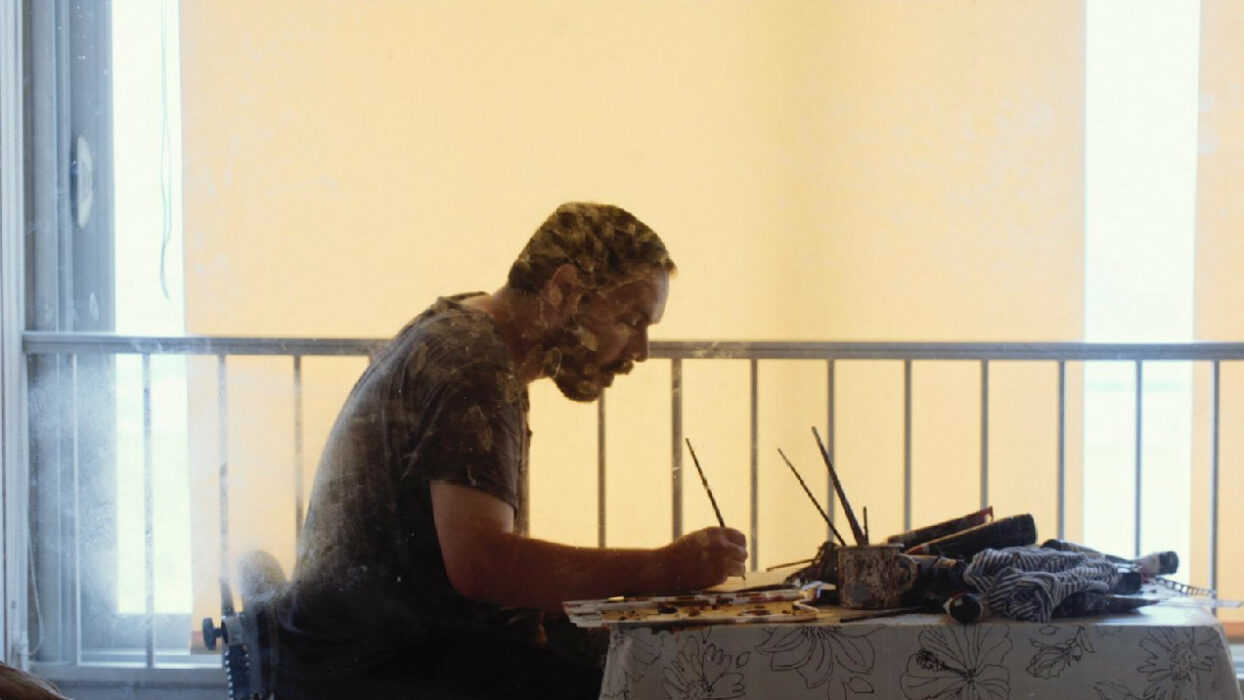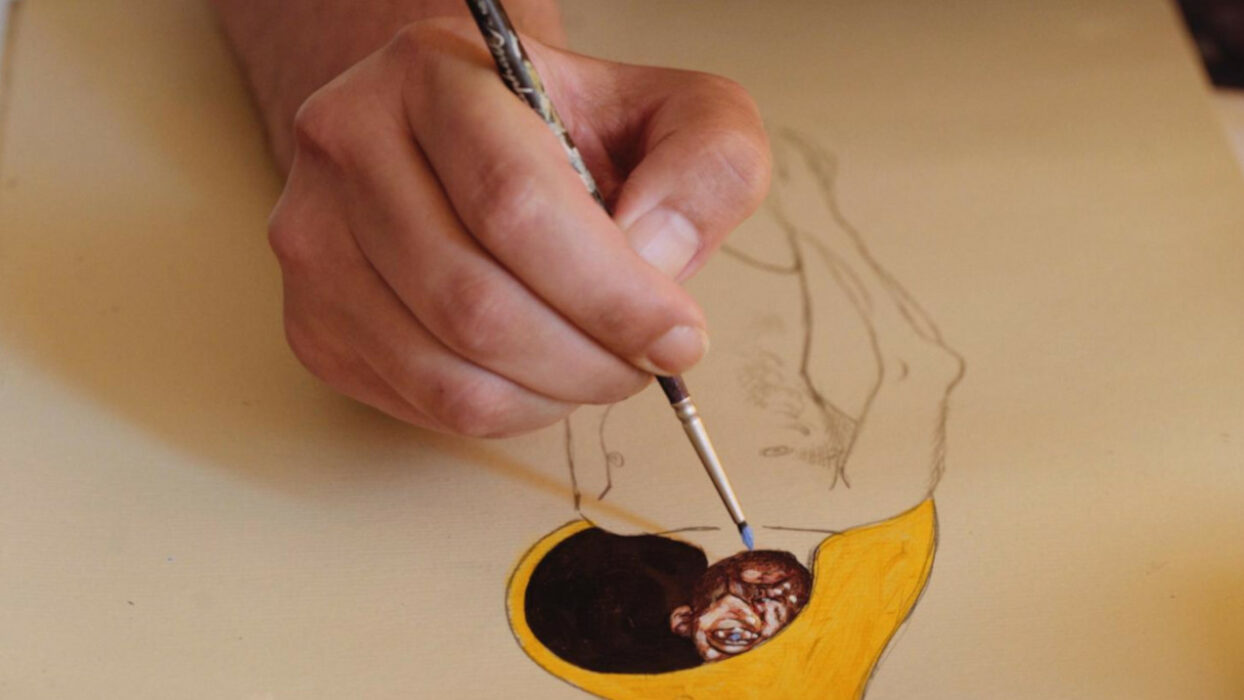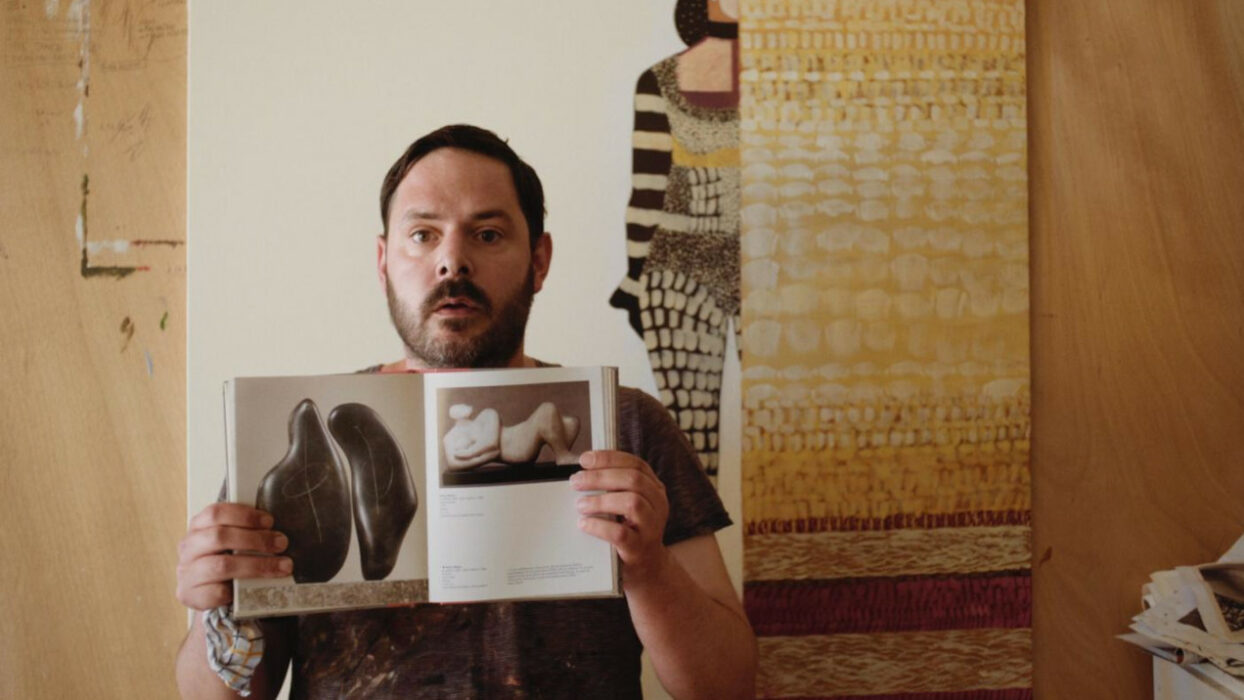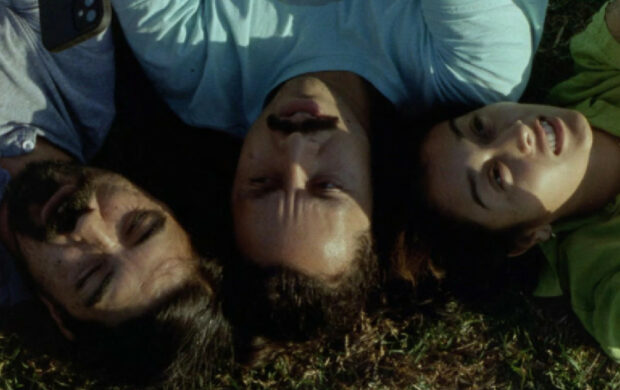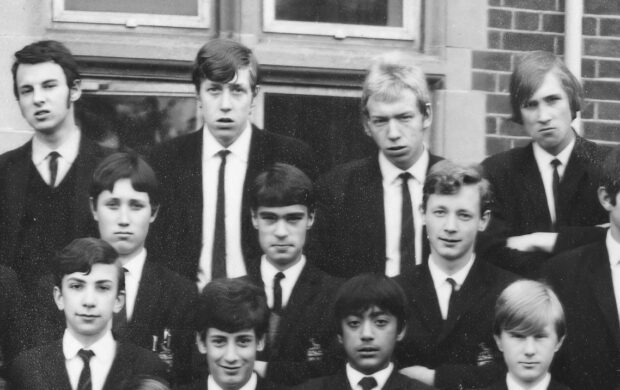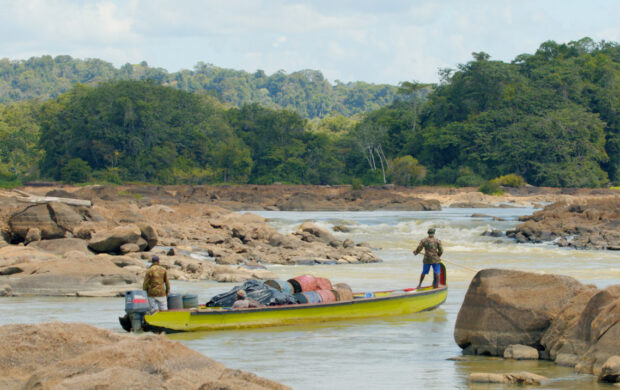Sa rafale
In 2020, Maxime spent time in a psychiatric hospital. This stay was marked by gentle and surprising encounters with the other patients. Now, Maxime invites his friend Guillaume, a painter and schizophrenic, to summon the presence of these patients. One tells his stories, the other paints.
There’s reason to fear the worst when a film begins with Super-8 images, especially if it’s a debut film with a first-person voice-over. It’s very appealing, it’s doing cinema. It manufactures melancholy for you in a fingerclick. But Maxime Garault’s film very quickly quashes this fear when what was simply a preamble gives way to the film and a more elevated idea of cinema. Moreover, this is what the real beginning says, with a shot that we see being constructed from the inside. The film’s only character, about to be filmed, stands up to close a blind, open a window, arrange a few things, then asks the filmmaker (while looking into the camera) if the lighting is suitable: in short, the character constructs the shot with the filmmaker and this is a kind of statement of principle, a way of showing themselves as apprentices working on making a film – which is always better than doing cinema. As we watch Sa rafale, this doesn’t prevent us from thinking more than once of a film or a filmmaker from the past (especially from the 1970s), showing the same kind of humlity, craftsmanship and aesthetics. For example, due to its way of bringing to life meticulously composed frames through very rich silences (often simply a few distant birds, through an open off-screen window): it only takes a shot from a balcony showing a patch of beach to parachute us into Duras or Rohmer (without counting the typography of the title cards). There is also a more straightforward reason: behind this filmmaker/character collaboration, we recognise a discreet and noble tradition (Shirley Clarke, among others). What is particularly splendid here is that this wish for collaborative humility is followed through to the point where, to give life to the film, each one has to do two things: while filmmaking, the filmmaker must also narrate; the character, while acting his part, is also painting (what the filmmaker is recounting) to give images to the film. Effort pays: Sa rafale is filmmaking with a talent rarely found today.
Jérôme Momcilovic

Maxime Garault
Maxime Garault studied literature, then editing at La Fémis. Sa rafale is his debut documentary.
Salaud Morisset
Salaud Morisset
Maxime Garault
Tristan Pontecaille
Maxime Garault
Salaud Morisset / festival@salaudmorisset.com
